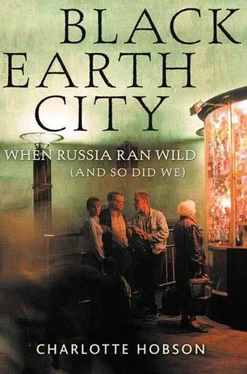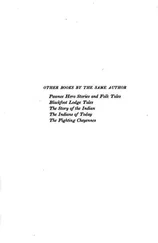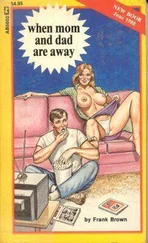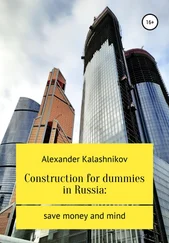Even in the 1930s, during the purges, Mandelstam detected an underlying spirit of dissent that he considered “the free spirit of the borderlands.” In one village he found the members of a sect—the jumpers—who were persecuted in tsarist times. There was chaos in the village because a short time before his visit the jumpers, speaking in tongues, had announced the date on which they would with one holy leap reach paradise. Nadezhda Mandelstam described the scene: “The sectarians had fixed a day on which they would take off for heaven, and, convinced that by next morning they would no longer be of this world, they gave away all their property to their earthbound neighbors. Coming to their senses when they fell to the ground, they rushed to recover their belongings and a terrible fight broke out.”
In another village the Mandelstams visited, the villagers were descendants of eighteenth-century exiles and convicts. Although the streets were named after Soviet heroes, the villagers proudly repeated the old street names that commemorated their forefathers’ activities: Strangler’s Lane, Embezzler’s Lane, Counterfeiter’s Row.
This part of Voronezh’s history, however, was little known or appreciated by the 1990s. For many people, the rabble that had begun to appear on the streets since perestroika was proof that the so-called democratic system was dragging their country into shame and disorder. Their town suddenly seemed strange to them, and dangerous. The hissed warnings began: don’t take the bus at night, don’t walk the streets in the dark, don’t go to the market on your own, don’t talk to Caucasians. These people—good, responsible citizens all of them—even regretted the end of the propiska , the residence permit, which had more or less prevented free movement within the Soviet Union. They would tell you that Russians could only be ruled by the rod: Look at our history! We’re an Asiatic people, we’re not European, they would explain. Russia is a great country—we just need a strong leader to bring us order.
This explosion on the streets did, of course, mean misery to many. Old people suffered the most. The housing shortage made them vulnerable to New Russian property developers, who tricked them out of their apartments. An old woman appeared in the stairwell of a friend’s apartment one winter day—he saw her standing by the radiator as he left for work, waiting for someone perhaps. In fact she was homeless and sick. Later that day she went up to the top floor, lay down on the cold steps, and died. There were many like her.
And yet for other members of the underclass it was a time of liberation. Johnson the bomzh told me and Mitya, “A whole year’s gone by without prison.” He couldn’t tell us why, but he added wistfully, “I’m going to the Novosibirsk region. They say it’s beautiful there, with forests and lakes…”
His tone reminded me of the dreams of the Russian peasantry in the nineteenth century, of a utopia on the White Waters of the Altai mountains. Inspired by some omen, whole villages would suddenly set out toward these mythical lands, leaving their houses and fields behind. In 1856, not realizing that the Crimean War had already ended, thousands of serfs departed on foot for the Crimea in the belief that all those who fought in the campaign would be set free.
And indeed, similar stories began to circulate in Voronezh in 1991. The Americans were about to open a factory in Voronezh, and all those who worked there would be given visas to the United States. The government was going to announce an immediate redistribution of land. And it was funding investigations into alien landings in the Voronezh region, as there had been so many sightings. One had even been reported by the Tass news agency: humanoid giants, three or four meters high with very small heads, had landed in a vehicle like a shining ball right in the center of the city—Koltsov Square, or thereabouts.
Why not? Stranger things were happening all around. Anyone could see, now, that the gray materialism of the Communist regime was too tight to contain all of life. Chaos, passion, and the old superstitious Russian magic had burst the seams, and now reality was layered and raucous.
So I was hardly surprised when the Horse told me about the deaf and dumb people. It was late one night at the bar in the Theater of the Young Spectator. We were talking about Lapochka’s housemates when the Horse sloped toward me and swore me to secrecy.
“You mustn’t ever let them see you know,” he whispered. “But they can hear, really, and speak.”
“What?”
“The deaf and dumb people. In reality they aren’t. I drank with them one day, you see. We went out to the vodka bar on Koltsov Square. That’s where they all go, they call it the White Horse. And I bought them drinks and they bought me drinks and I think they must have put something in them, because I started feeling very hazy and you know that’s not like me… Everything was looking unsteady… and then one of them suddenly said, ‘You know I can talk if I want. But I don’t want.’ And another one said, ‘We’re underground, three kilometers underground.’ I particularly remember three kilometers.”
“Then why do they pretend?”
“They have their reasons,” said the Horse, shrugging. “Who knows why?”
He grinned his toothy grin and changed the subject. The Horse liked a mystery.
Whom God lets fall sinks deep.
RUSSIAN PROVERB
Is there room here, perhaps, to tell the story of little Pavlik? Whose diminutive size was the source of so much amusement? “Little Pavlik!” people would call, pretending to search for him. “Have you slipped down behind your bed? Been crushed under your blanket? You’ve not been trying to shave again, have you? How many times have we told you, that’s for big boys, not for little Pavlik.” They’d laugh and Pavlik would summon a smile although, who knows, it may have been then that the proper use of a razor first occurred to him.
Pavlik was, I think, eighteen. He must have been about four foot eleven, very slight and pale, with soft, colorless hair and a large forehead that sloped into a weak chin. His eyes flickered away from direct contact, but his mouth had an aggressive cast that only increased his comic potential. Just occasionally, when he thought himself unobserved, his large head drooped and revealed the nape of his neck. There was something horrifying about its slenderness.
His size, you see, was not hereditary. Pavlik had grown up in a children’s home, fed on porridge and scraps of oily fish. All the inmates of Soviet institutions were badly fed, from the pride of the Red Army to the prisoners in the camps, but the orphans, of course, never recovered from the effects of malnutrition and early misery. Pavlik’s parents had died, and his grandmother, old and weak herself, couldn’t take on the burden of a young child. She had only her pension—how could she feed a growing boy? He’d be better looked after by the state, which cared for each of its children like a father and a mother. She left him at the children’s home with a small bag of clothes and a knitted puppy, promising that if he worked hard she would fetch him soon. Pavlik waited, listening for her voice in his sleep. Years passed, the puppy unraveled under its burden of love. When nothing remained but a soggy woolen ear, Pavlik was called into the director’s office and told that his grandmother had died some time before.
“We decided to wait until you were older before telling you,” said the director. “It’s our policy.”
Pavlik worked hard, just as his grandmother had told him. It was exceptional for a child from a home to get a place at university, but Pavlik had made it. He was an intelligent boy, he would work in an office one day, have a suit, an apartment. But for the time being he lived in the hostel and moved along its greenish corridors with a familiarity that made me sad. He never complained about the showers, like we did, or the claustrophobia. In the afternoons he lay on his bed, which was unusually comfortable by hostel standards. I exclaimed about it once and Pavlik’s face lit up.
Читать дальше












